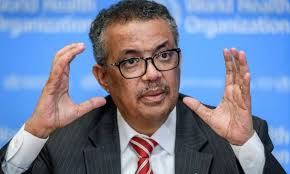The World Health Organization (WHO) recently reaffirmed that the ongoing mpox outbreak remains a global public health emergency, as declared at a meeting in Geneva by an independent expert committee. This decision comes three months after the initial health emergency announcement in August due to the virus’s spread, particularly in African nations. A new strain, known as Clade 1b, which emerged from the Democratic Republic of Congo, poses increased risks, potentially leading to more severe health outcomes. Although mpox infections typically present as mild through symptoms like skin rashes and fever, they can be life-threatening, especially for vulnerable populations such as young children and immunocompromised individuals.
The WHO highlighted alarming statistics, with over 50,000 suspected cases reported in Africa in 2023, resulting in more than 1,080 fatalities; only around 12,000 cases were confirmed through laboratory testing. Comparatively, the European Centre for Disease Prevention and Control has determined that the risk associated with mpox for the general population in Europe remains low. However, concerns have been raised about Clade 1b, which has already been detected in multiple countries, including the UK and Germany. The first reported case in Britain involved a traveler who contracted the virus while on holiday in Africa, and subsequent cases have surfaced, prompting increased vigilance.
The WHO’s declaration of a Public Health Emergency of International Concern (PHEIC) serves as the organization’s highest alert level, aimed at mobilizing global efforts to combat the outbreak. This categorization does not impose specific obligations on nations, but it emphasizes the need for coordinated action. Similar protocols were enacted at the onset of the COVID-19 pandemic. Since the emergency was declared in August, significant strides have been made in response efforts, including the mobilization of new funds for operations in affected regions and the advancement of potential vaccines through emergency authorizations, which facilitate quicker distribution.
WHO Director-General Tedros Adhanom Ghebreyesus communicated the need for heightened response efforts, emphasizing that the ongoing rise in cases and geographical spread of mpox require sustained and cohesive global action. Tedros called upon affected nations to bolster their health responses and urged the international community to demonstrate solidarity in tackling the outbreak effectively. This call for action is critical at a time when the risk of transmission remains, and collaboration among countries is paramount for public health success.
The emergence of Clade 1b underlines the evolving nature of the mpox virus and the necessity for continuous surveillance and research into its implications. The WHO’s focus not only includes immediate containment strategies but also broader discussions regarding vaccination efforts, which are essential for preventing further spread of the virus. The organization’s support in facilitating vaccine testing and authorization is a crucial element of its strategy in managing mpox, particularly in countries experiencing significant outbreaks.
In conclusion, the continued designation of mpox as a global public health emergency highlights the virus’s persistent threat and the need for international cooperation. The WHO’s proactive stance, along with the swift response from countries and health organizations, is essential in mitigating the effects of this outbreak. As new strains of the virus emerge and the public health landscape evolves, concerted efforts from all stakeholders will be necessary to protect vulnerable populations and contain any further escalation of mpox-related cases.














